The ex-Muslim Britons who are persecuted for being atheists
- Published
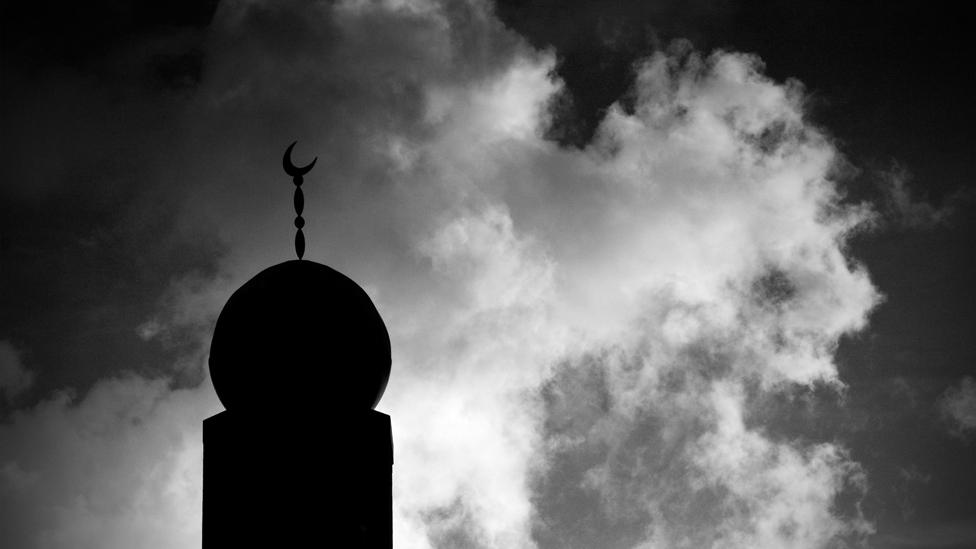
Many people take for granted the right to choose to leave the religion of their childhood. But not everybody has that choice, writes Samira Ahmed.
It sounds like a crime from a medieval history book. Apostasy is the decision to renounce a faith and/or convert to another religion.
It's not recorded in the Census, but the 2011 figures show the number of people in England and Wales who say they have no religion nearly doubled in the 10 years since 2001, external to a quarter of the population.
In the same time the number of Muslims in England and Wales grew by 80% to 2.7 million, external.
And among some of Britain's urban Muslims - nearly half of whom were born in the UK and are under 24 - there's a belief that leaving Islam is a sin and can even be punished by death.
An investigation for the BBC has found evidence of young people suffering threats, intimidation, being ostracised by their communities and, in some cases, encountering serious physical abuse when they told their families they were no longer Muslims.
There are also local councils that seem to have little awareness of the issue or any policy on how to protect these vulnerable young people.
There are no official statistics on apostasy in British Islam, and only a few academic studies based on a tiny handful of individual cases.
But growing numbers of ex-Muslims are sharing their experiences on online forums. Coming out as a non-believer at an age when young people of all backgrounds can rebel over relationships and cultural expectations means it's often hard to identify religion as a factor.
But whereas there is recognition of homophobia in the law for gay people, what happens to teenagers whose families reject their right to leave their religion?
Ayisha (not her real name) from Lancashire was just 14 when she began to question Islam after reading the Koran. She started rebelling over wearing the hijab, but eventually decided she wasn't a Muslim and the situation at home rapidly got worse.
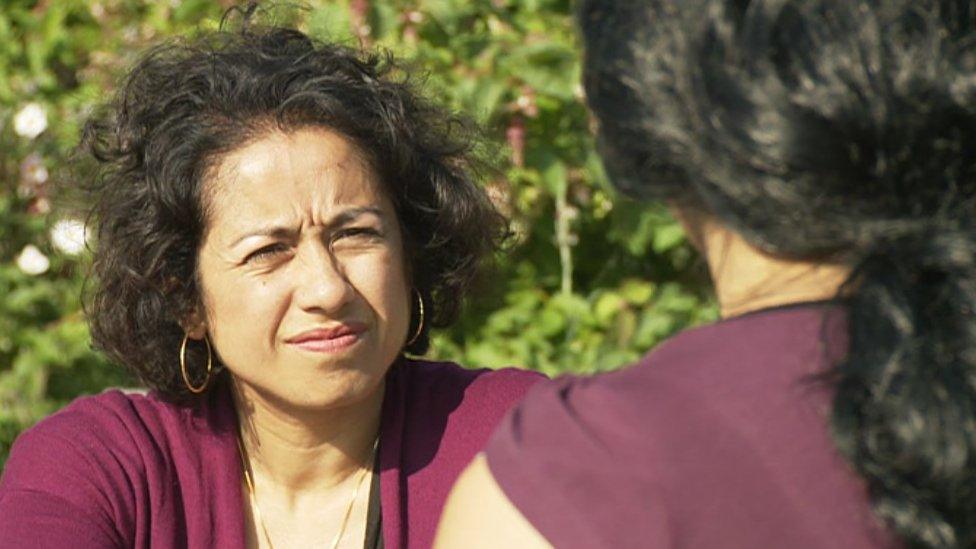
Ayisha (right) tells her story about renouncing her faith to Samira Ahmed on BBC's Inside Out
"My dad threatened to kill me by getting a knife and holding it against my neck and saying: 'We might as well do it if you're going to bring this much shame to the family.'"
He used to beat her so badly that eventually she called the police and he was convicted of child cruelty. Ayisha hadn't anticipated the shock of being immediately cut off from her mother and siblings.
Now just 17 and studying for A-levels, she's been placed by the council under the guardianship of her boyfriend's father. It's hardly ideal, but she understands why. "They thought I wasn't at much risk and that was the end of it."
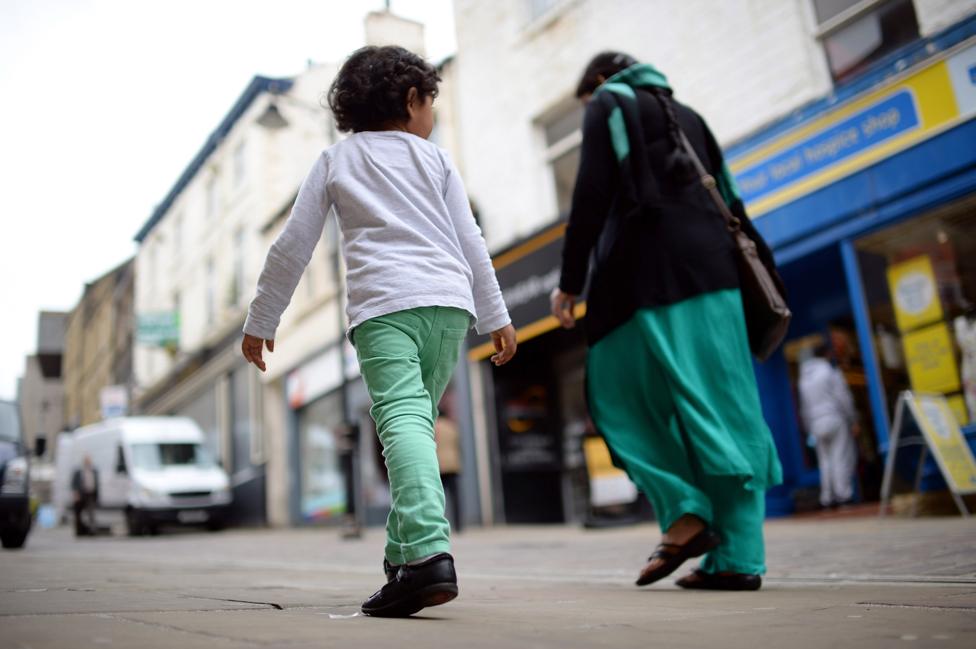
Aaliyah says it was difficult - as a non-believer - to carry on living alongside Muslims in Bradford
Aaliyah, 25, who also did not wish to be named, lives in South Yorkshire. She left Islam while at university and realised she couldn't move back home, where her parents had a marriage arranged for her and the fear of violence was very real.
"I know my family wouldn't hurt me, not my immediate family," she says, looking back. "But I haven't told my relatives. My dad's actually told me that if the wrong people found out then he doesn't know what's going to happen."
Aaliyah offers advice to other ex-Muslims on online forums and urges them to get financially independent before they tell their parents, so they can cope with being thrown out.
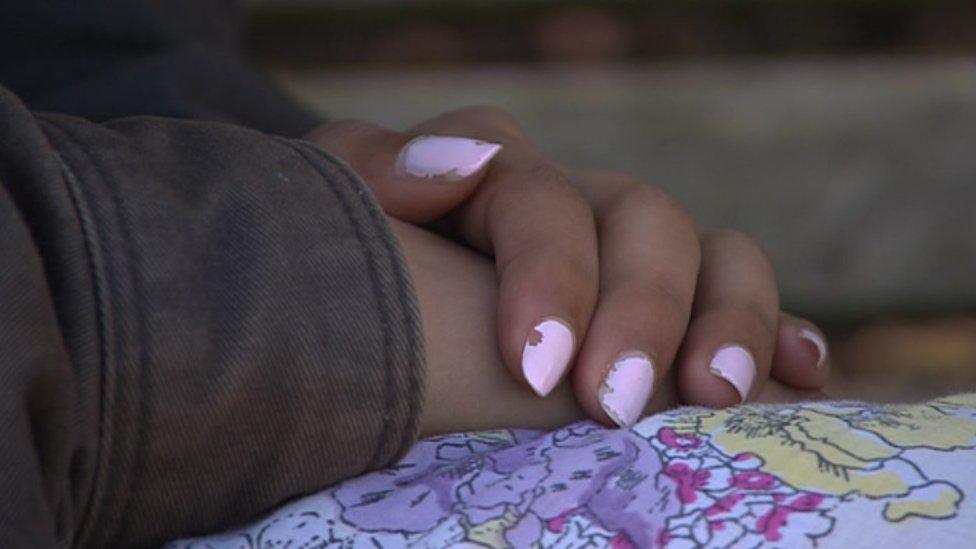
Aaliyah says the importance of being true to herself outweighed the loneliness and guilt she felt
Like other ex-Muslims, she says the importance of being true to herself outweighs the very real loneliness of being disowned and the guilt placed on her.
"When I came out to my family my auntie told me my brothers and sisters wouldn't be able to get married because their honour would be tarnished. And it would all be my fault."
The fear is constant too. "I used to live in Bradford for a time and I'd be very quiet about it because there are Muslims everywhere. I still have this innate fear, it's hard to explain. You just want to keep quiet about it. It's just safe to stay quiet."

Blasphemy laws around the world
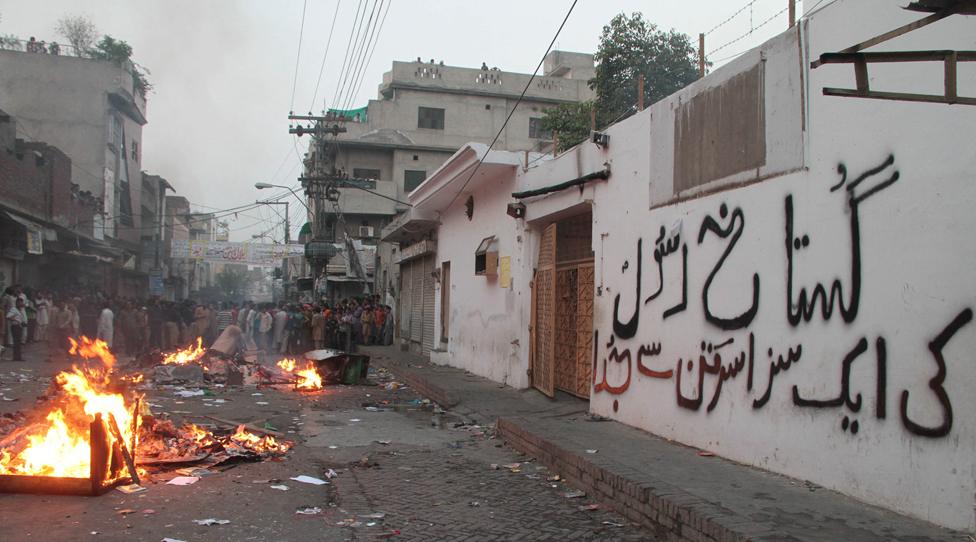
A 2012 riot in Lahore, Pakistan, after a teacher at a Christian school was accused of blasphemy against Islam
As of 2012, 22% of the world's countries and territories had anti-blasphemy laws or policies
One in ten (11%) had laws or policies penalising apostasy with a range of punishments varying from fines to death
In the Americas, 31% of countries had blasphemy laws. In the Bahamas, the publication or sale of blasphemous material can be punished with up to two years' imprisonment

Afzal Khan came from Pakistan, where blasphemy laws and conservative social attitudes have left apostates at risk of violence, to study theology at Bradford University. Over the course of his studies he made the decision to leave Islam and told friends in Pakistan, via posts on a social media network. "I personally concluded that this faith is primarily a very misogynistic faith and that was a clear turning point. All my Muslim friends they were just shocked. Initially they thought I was just joking, but when they realised that I'm serious they started abusing me, cursing me and, in a mild way at the start, they started threatening me."
His family disowned him. "I spoke to my mother over the phone and she yelled that 'you are no more my son'. Then my brother picked up the phone and their message was that you do not belong to us and since then I've not heard anything back from them." Afzal subsequently heard from relatives that his mother had said he should be killed, "because that's what the Islamic state requires from blasphemers".
He and his wife and young daughter have recently been given leave to remain in the UK, because of the risk to their safety of returning to Pakistan.
The BBC contacted 13 local authorities with large Muslim populations across Yorkshire and Lincolnshire. None had any provision for dealing with vulnerable ex-Muslims, and many had no idea what apostasy even was.
Some said there was adequate provision in existing services for young people in trouble. Given the pressure from within Muslim communities to keep the perceived stigma of apostasy secret, it is perhaps not surprising that local authorities don't have much awareness of the issue.
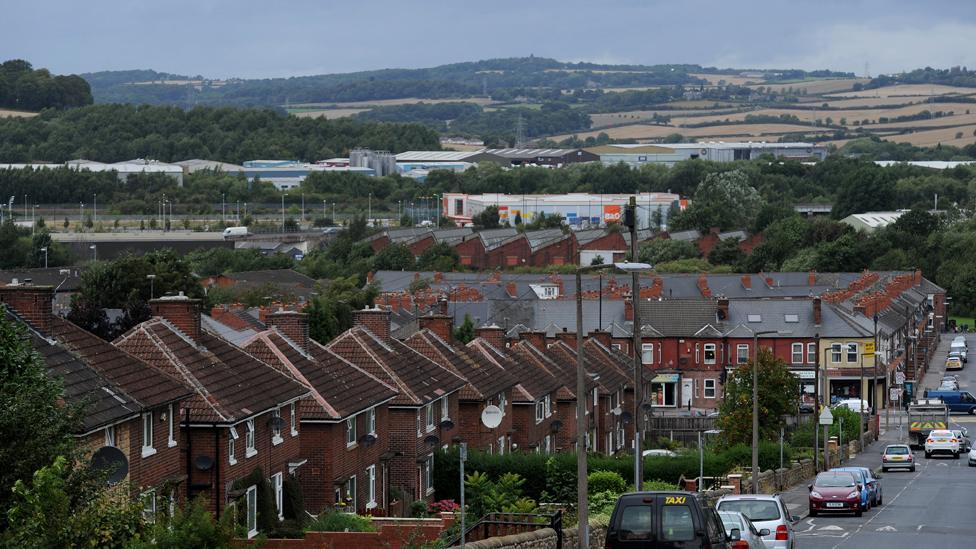
However the Rotherham sexual abuse scandal exposed an institutionalised attitude of turning a blind eye to the suffering of vulnerable young people because of the overwhelmingly Pakistani Muslim ethnic and religious identity of the abusers.
A similar sensitivity around offending Muslim culture and belief could be prominent in the reluctance of local authorities and government to formulate a policy on apostasy, when that predominantly seems to affect young, vulnerable ex-Muslims who can find themselves isolated and afraid, as they struggle with their identify and their safety.
Ahmadiyya Muslims are a minority in Islam in saying that there should be no punishment in this life for apostasy and they emphasise that there should be no compulsion in religion. They are themselves regarded as heretics by some Sunni sects and persecuted in Pakistan.
Muzzafar Ahmad, an Ahmadiyya imam in Scunthorpe, says he knows several ex-Ahmadiyya Muslims and "they've never been punished or persecuted in any shape or form".
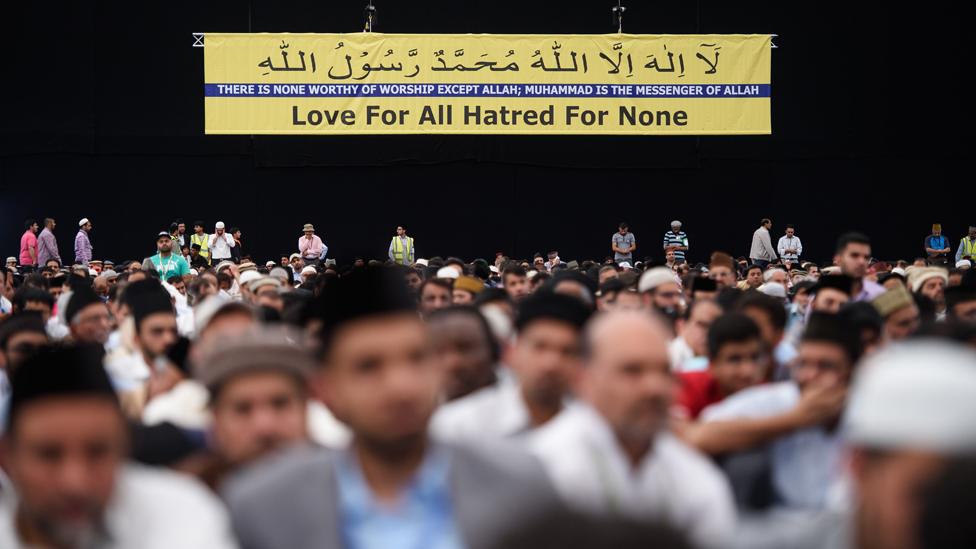
Ahmadiyya Muslims (seen here at an event in Hampshire last month) do not consider apostasy a sin
He's concerned about the way Islam is being taught in Muslim majority schools. "We need to teach children comparative religion in schools, but we shouldn't be teaching religion in school." He believes it's to blame for growing segregation and intolerance in some close-knit Muslim communities.
Alom Shaha, a trustee of the British Humanist Association, wrote The Young Atheist's Handbook about his own experience of leaving Islam as a young man. As a result he is contacted by many distressed young ex-Muslims seeking help and advice.
Shaha is very sensitive to the fear of fuelling anti-Muslim prejudice, but says: "We mustn't ignore those within these communities who are also oppressed. So I want people who are responsible for taking care of vulnerable young people to recognise that being an atheist can be an absolutely serious matter which puts people at risk."
Samira Ahmed's report on apostasy goes out on Inside Out Yorkshire and Lincolnshire and Inside Out North West on 28 September at 19:30 BST on BBC One - or watch on the BBC iPlayer
Subscribe to the BBC News Magazine's email newsletter, external to get articles sent to your inbox.